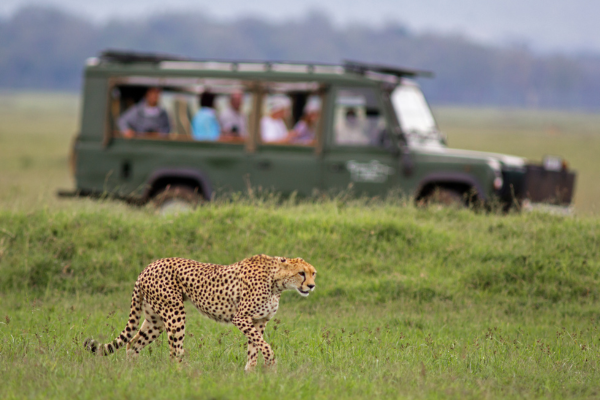Introduction
Embarking on a safari in Kenya is an exhilarating adventure, but proper preparation is key to ensuring a smooth and enjoyable experience. From essential clothing to safari gear, health and safety necessities, and cultural sensitivity, there’s a lot to consider when packing for this once-in-a-lifetime journey.
Essential Clothing and Footwear
Light and Breathable Clothing
One of the crucial factors to consider when going on a safari in Kenya is the climate. Opt for light and breathable clothing to stay comfortable during the day and warm in the cooler evenings.
Sturdy and Comfortable Footwear
With varied terrains and possible walking safaris, sturdy and comfortable footwear is a must. Choose closed shoes to protect your feet from potential hazards.
Protection from the Elements
Sunscreen and Sunglasses
The African sun can be intense, so don’t forget to pack high SPF sunscreen and sunglasses for eye protection.
Hat and Scarf for Sun Protection
A wide-brimmed hat and a lightweight scarf can provide additional protection from the sun, keeping you cool and shielded.
Safari Gear
Binoculars
Enhance your wildlife viewing experience with a good pair of binoculars. Spot distant animals and appreciate the details of the landscape.
Camera with a Zoom Lens
Capture breathtaking moments on your safari with a camera equipped with a zoom lens. From majestic lions to graceful giraffes, you’ll want to relive these memories.
Field Guidebook
Educate yourself about the diverse flora and fauna of Kenya with a field guidebook. It adds an educational dimension to your safari experience.
Health and Safety Essentials
First Aid Kit
Prepare for any minor injuries or ailments with a well-stocked first aid kit. Include basic medications, bandages, and antiseptic ointments.
Insect Repellent
Protect yourself from pesky insects by packing a reliable insect repellent. This is essential for preventing insect-borne illnesses.
Prescription Medications
If you have any prescription medications, ensure an ample supply for the duration of your safari. Keep them in their original packaging with clear labels.
Nourishment on Safari
Hydration Essentials
Stay hydrated in the African heat by carrying a reusable water bottle. Some safaris may not have regular access to clean water, so it’s crucial to stay well-hydrated.
Snacks for Energy
Pack energy-boosting snacks like nuts, granola bars, and dried fruit. These come in handy during long drives or when exploring on foot.
Safari Accommodations
Packing for Various Accommodations
Safaris often involve stays in different accommodations. Pack accordingly, keeping in mind the amenities available at each location.
Portable Chargers for Electronic Devices
Don’t miss capturing a stunning sunset or wildlife encounter due to a dead battery. Bring portable chargers for your electronic devices.
Cultural Sensitivity
Respectful Clothing Choices
Respect local customs and sensibilities by dressing modestly. Be aware of any specific clothing requirements when visiting cultural or religious sites.
Understanding Local Customs
Take the time to understand and appreciate the local customs. Engage with the community respectfully and learn about their way of life.
Environmental Responsibility
Eco-friendly Products
Minimize your environmental impact by using eco-friendly products. Choose biodegradable toiletries and reusable items to reduce waste.
Waste Management on Safari
Follow responsible waste management practices. Dispose of litter properly and contribute to maintaining the pristine beauty of the natural surroundings.
Wildlife Viewing Etiquette
Quiet Observation
Practice quiet observation to avoid disturbing wildlife. Listen to the sounds of nature and enjoy the peaceful coexistence with the animals.
Respectful Behavior Towards Animals
Maintain a safe distance from wildlife and avoid any behavior that could agitate or endanger the animals. Respect their natural habitat.
Safari Itinerary Planning
Researching the Region
Before your safari, research the specific region you’ll be visiting. Understand the wildlife, landscape, and any unique features of the area.
Understanding the Weather Conditions
Pack accordingly by checking the weather conditions for the duration of your safari. Prepare for both warm days and cooler nights.
Safety Tips
Following the Guide’s Instructions
Listen attentively to your safari guide’s instructions. They are knowledgeable about the area and will ensure your safety throughout the journey.
Emergency Contacts and Communication
Have a list of emergency contacts readily available. Ensure your communication devices are in good working order, providing a lifeline if needed.
Safari Memories
Journal and Sketchbook
Document your safari experience in a journal or sketchbook. Capture your thoughts, drawings, and observations for a lasting memento.
Creating Lasting Memories
Immerse yourself in the moment. Turn off electronic devices occasionally and absorb the sights, sounds, and smells of the Kenyan wilderness.
Budget Considerations
Hidden Costs to Anticipate
Beyond the safari package, be aware of potential hidden costs such as tips, additional excursions, and souvenirs. Plan your budget accordingly.
Choosing the Right Safari Package
Research and select a safari package that aligns with your preferences, whether it’s a luxury lodge experience or a more adventurous camping safari.
Conclusion
Embarking on a safari in Kenya is an enriching experience that requires careful planning and consideration. By packing the right essentials, respecting local customs, and being environmentally conscious, you can make the most of this extraordinary adventure. Safeguard your health, capture memories, and immerse yourself in the breathtaking landscapes and wildlife that Kenya has to offer.
FAQs
- What should I wear on a safari in Kenya?
- Opt for light, breathable clothing and sturdy, comfortable footwear. Don’t forget a wide-brimmed hat and sunglasses for sun protection.
- How can I stay safe on a safari?
- Follow your guide’s instructions, have emergency contacts ready, and practice wildlife viewing etiquette, maintaining a safe distance from animals.
- What wildlife can I expect to see in Kenya?
- Kenya boasts a diverse range of wildlife, including lions, elephants, giraffes, zebras, and numerous bird species.
- Are there any cultural considerations when on safari?
- Yes, dress modestly, respect local customs, and engage with the community respectfully to ensure a positive cultural experience.
- How should I plan my safari itinerary?
- Research the region, understand the weather conditions, and choose a safari package that suits your preferences and budget.

